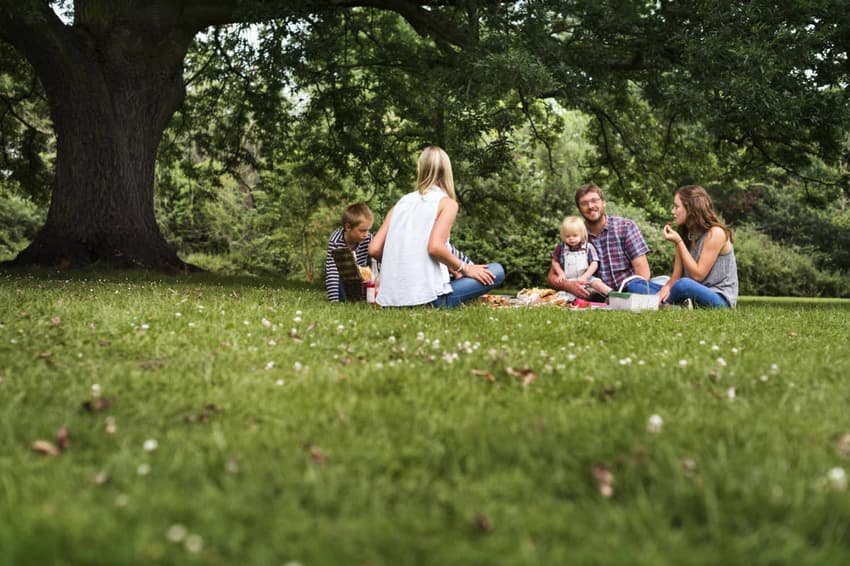It’s official: 'hygge' is now an English word

It's been trending in the UK and US for so long that it has almost become a publishing genre in its own right. Now hygge is here to stay with its very own entry in the Oxford English Dictionary (OED).
The popularity of hygge has seen British as well as American media putting out article upon article on the culture behind the word – often holding forth on Danish clichés such as candles, wool, fireplaces and elderflower juice.
At least nine books have also been released on the topic over the last eighteen months.
Often mistranslated as ‘cosy’, hygge is most commonly used – at least in this reporter’s anecdotal view – simply to mean ‘having a nice time’.
Danish publisher Gyldendal's Danish-English dictionary translates the adjective form of the word – which can also be used as a noun or verb – as 'cosy', 'comfortable', 'pleasant' and 'homelike', amongst other things.
Oxford Dictionaries has previously defined hygge as a noun meaning “a quality of cosiness and comfortable conviviality that engenders a feeling of contentment or well-being (regarded as a defining characteristic of Danish culture)”.
READ ALSO: Danish experts warn of 'hygge-junkie' health risk
Use of the word in British parlance has also given rise to the need to explain its difficult pronunciation, since the Danish ‘y’ vowel does not exist in English and the short ‘e’ on the end of the word is also uncommon.
While Brits can be forgiven for pronouncing 'hygge' as they read it (‘higgy’), advice to say the word as ‘hoo-gah’ or ‘hue-guh’ in the The Guardian and other media is also a little inaccurate.
Approximate equivalent British pronunciations to the word’s two vowel sounds are the ‘u’ in ‘put’ for the Danish y; and the ‘or’ in ‘tractor’ for the ‘e’.
The British affection for hygge is believed to have started with a 2015 BBC article.
Hygge is not the only aspect of Danish culture to have enjoyed a breakout in the UK in recent years. The country’s gritty crime dramas and New Nordic cuisine have also seen success overseas, not to mention the biggest cliché of them all – Denmark’s regularly achieved position at the top of ‘world’s happiest country’ rankings.
Other words permanently entering the British lexicon in the latest OED update include ‘woke’, ‘tennis mum’ and ‘post-truth’.
Our June 2017 update sees the inclusion of 'woke', 'tennis mum', and many more words, phrases, and senses. https://t.co/Ps7wWEJGxw
— The OED (@OED) June 26, 2017
READ ALSO: Hygge loses out to post-truth as 2016's word of the year
Comments
See Also
The popularity of hygge has seen British as well as American media putting out article upon article on the culture behind the word – often holding forth on Danish clichés such as candles, wool, fireplaces and elderflower juice.
At least nine books have also been released on the topic over the last eighteen months.
Often mistranslated as ‘cosy’, hygge is most commonly used – at least in this reporter’s anecdotal view – simply to mean ‘having a nice time’.
Danish publisher Gyldendal's Danish-English dictionary translates the adjective form of the word – which can also be used as a noun or verb – as 'cosy', 'comfortable', 'pleasant' and 'homelike', amongst other things.
Oxford Dictionaries has previously defined hygge as a noun meaning “a quality of cosiness and comfortable conviviality that engenders a feeling of contentment or well-being (regarded as a defining characteristic of Danish culture)”.
READ ALSO: Danish experts warn of 'hygge-junkie' health risk
Use of the word in British parlance has also given rise to the need to explain its difficult pronunciation, since the Danish ‘y’ vowel does not exist in English and the short ‘e’ on the end of the word is also uncommon.
While Brits can be forgiven for pronouncing 'hygge' as they read it (‘higgy’), advice to say the word as ‘hoo-gah’ or ‘hue-guh’ in the The Guardian and other media is also a little inaccurate.
Approximate equivalent British pronunciations to the word’s two vowel sounds are the ‘u’ in ‘put’ for the Danish y; and the ‘or’ in ‘tractor’ for the ‘e’.
The British affection for hygge is believed to have started with a 2015 BBC article.
Hygge is not the only aspect of Danish culture to have enjoyed a breakout in the UK in recent years. The country’s gritty crime dramas and New Nordic cuisine have also seen success overseas, not to mention the biggest cliché of them all – Denmark’s regularly achieved position at the top of ‘world’s happiest country’ rankings.
Other words permanently entering the British lexicon in the latest OED update include ‘woke’, ‘tennis mum’ and ‘post-truth’.
Our June 2017 update sees the inclusion of 'woke', 'tennis mum', and many more words, phrases, and senses. https://t.co/Ps7wWEJGxw
— The OED (@OED) June 26, 2017
READ ALSO: Hygge loses out to post-truth as 2016's word of the year
Join the conversation in our comments section below. Share your own views and experience and if you have a question or suggestion for our journalists then email us at [email protected].
Please keep comments civil, constructive and on topic – and make sure to read our terms of use before getting involved.
Please log in here to leave a comment.